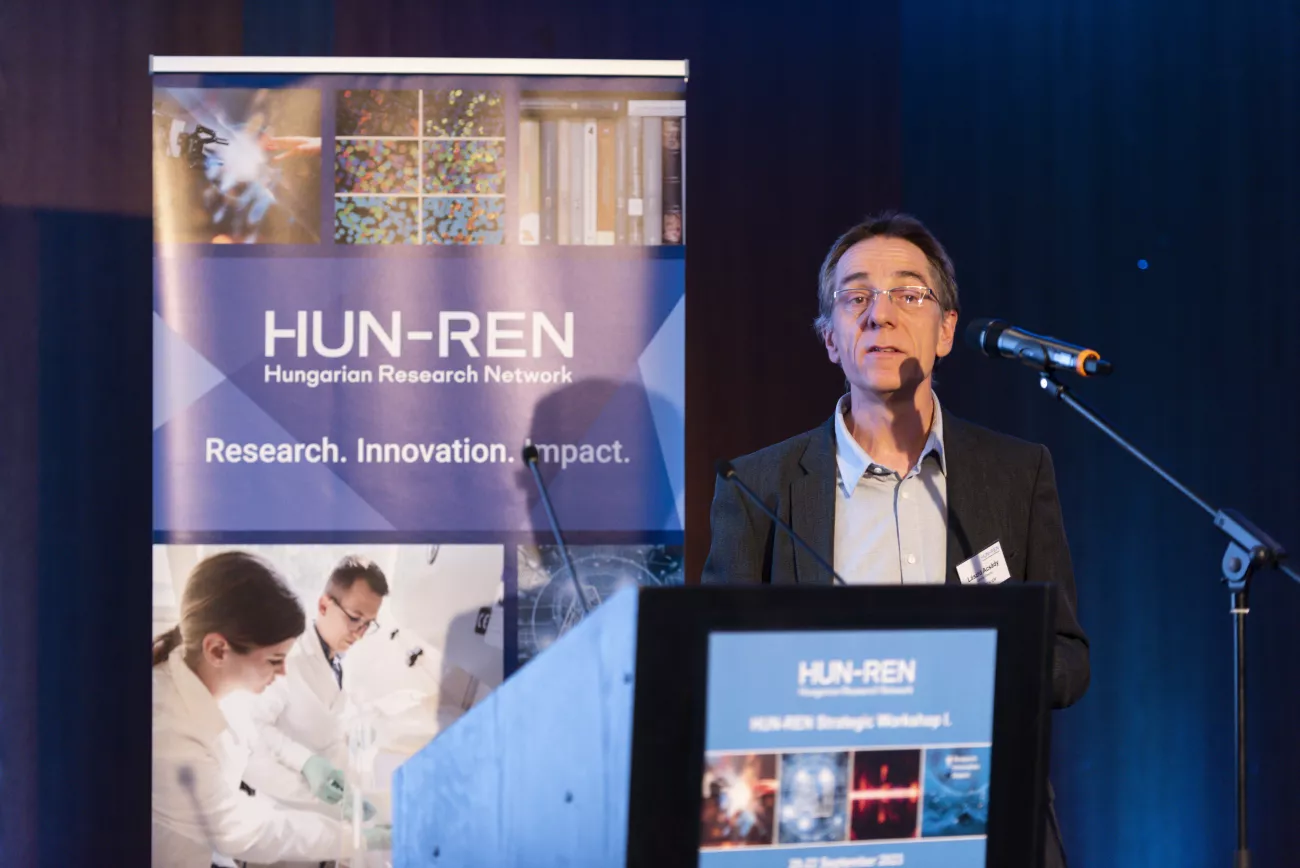On 20-22 September 2023, the Hungarian Research Network (HUN-REN) organised a three-day workshop with the participation of world-renowned researchers. The objective of the event was for the world-leading scientists and strategists to get more acquainted with the opportunities within the Hungarian research system and share international best practices with their Hungarian colleagues.
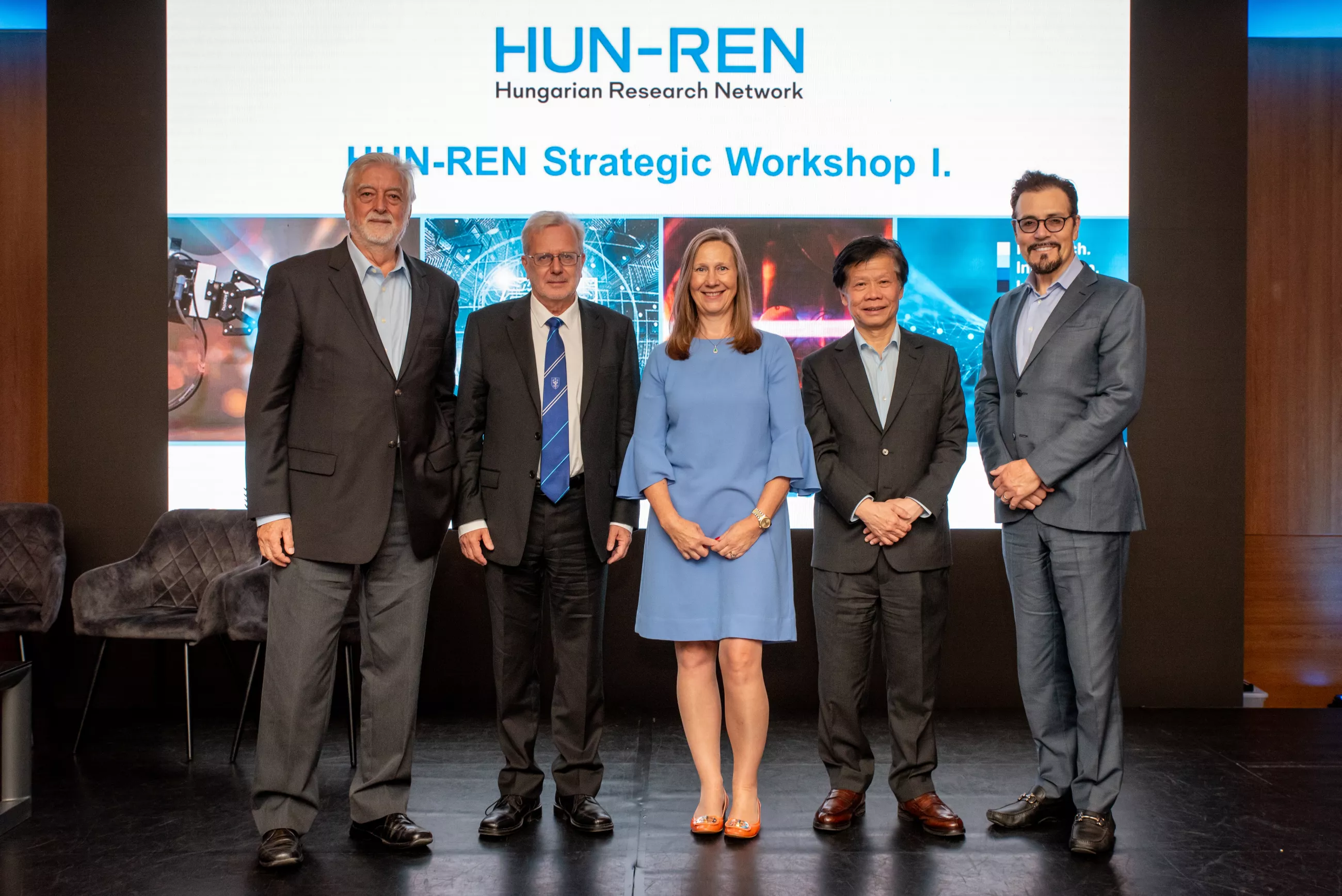
Dedicated to enhancing the global competitiveness of the Hungarian research system, researchers and advisors from around the world presented international best practices and trends. They addressed the role of science in modern society and the ongoing transformation in the evaluation of scientific performance.
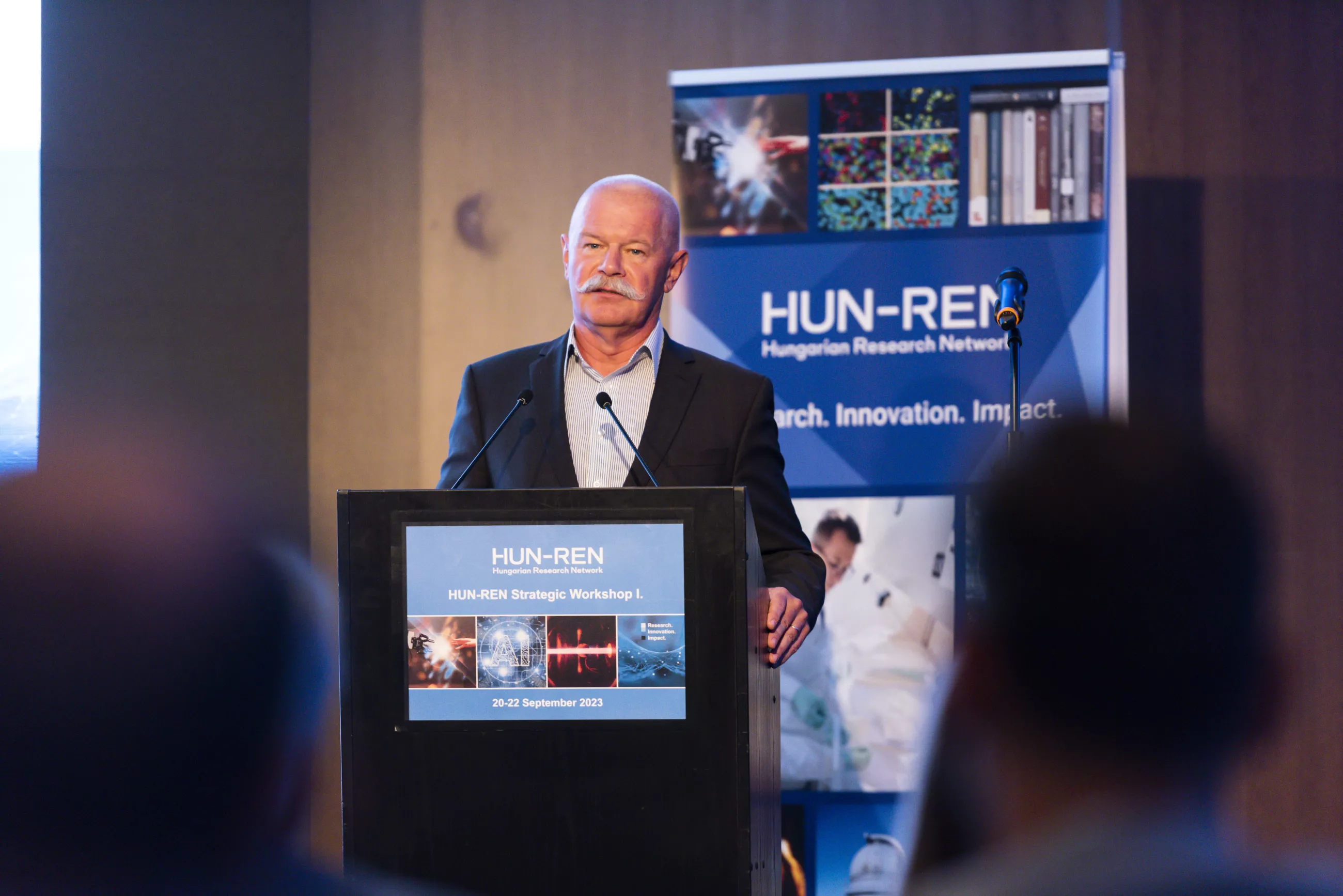
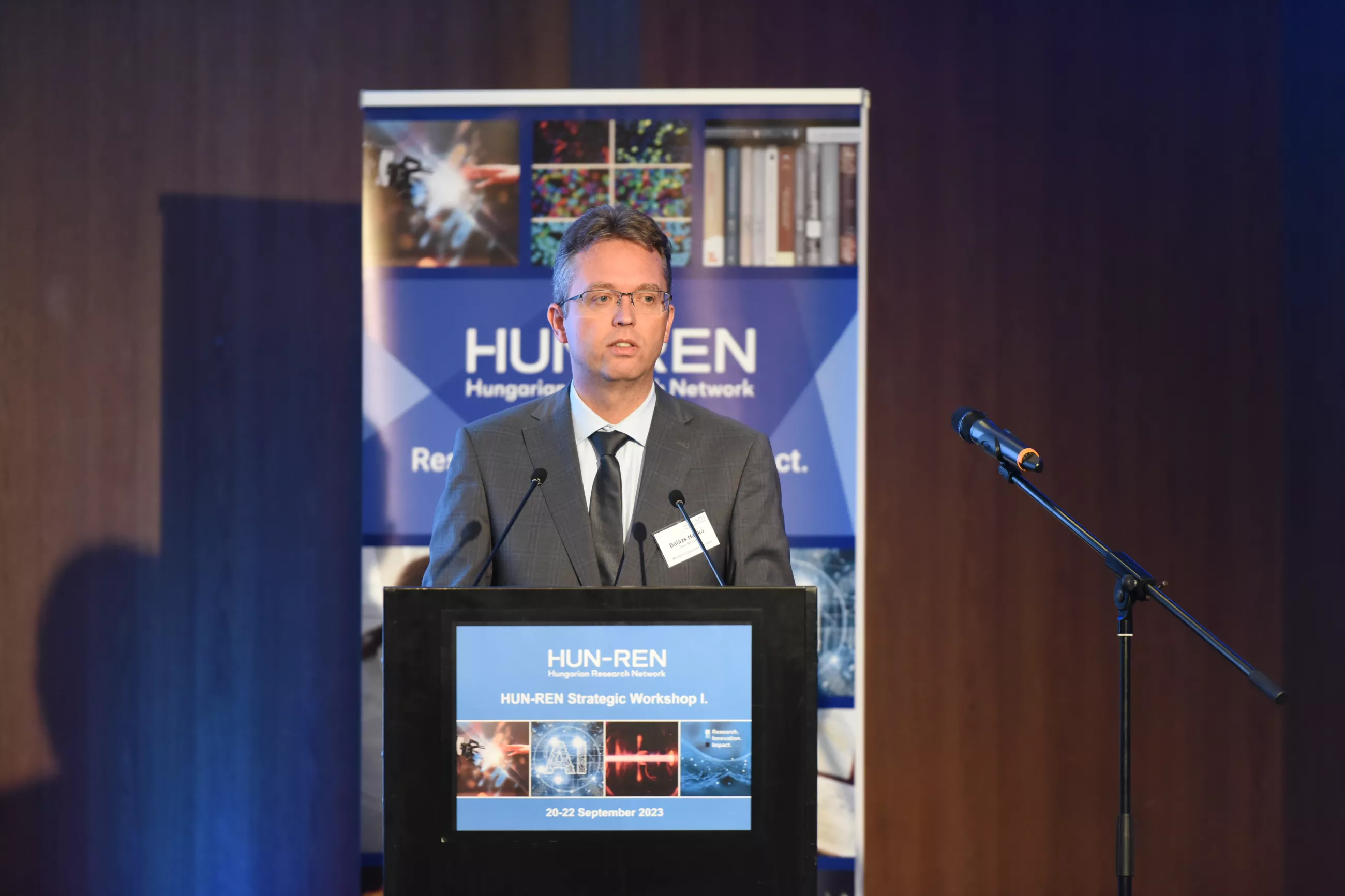
At the event, János Csák, Minister of Culture and Innovation and Balázs Hankó, State Secretary for Innovation and Higher Education, discussed the John von Neumann Program (NJP) and Hungary's scientific and innovation objectives, with particular emphasis on HUN-REN’s role in the implementation of NJP.
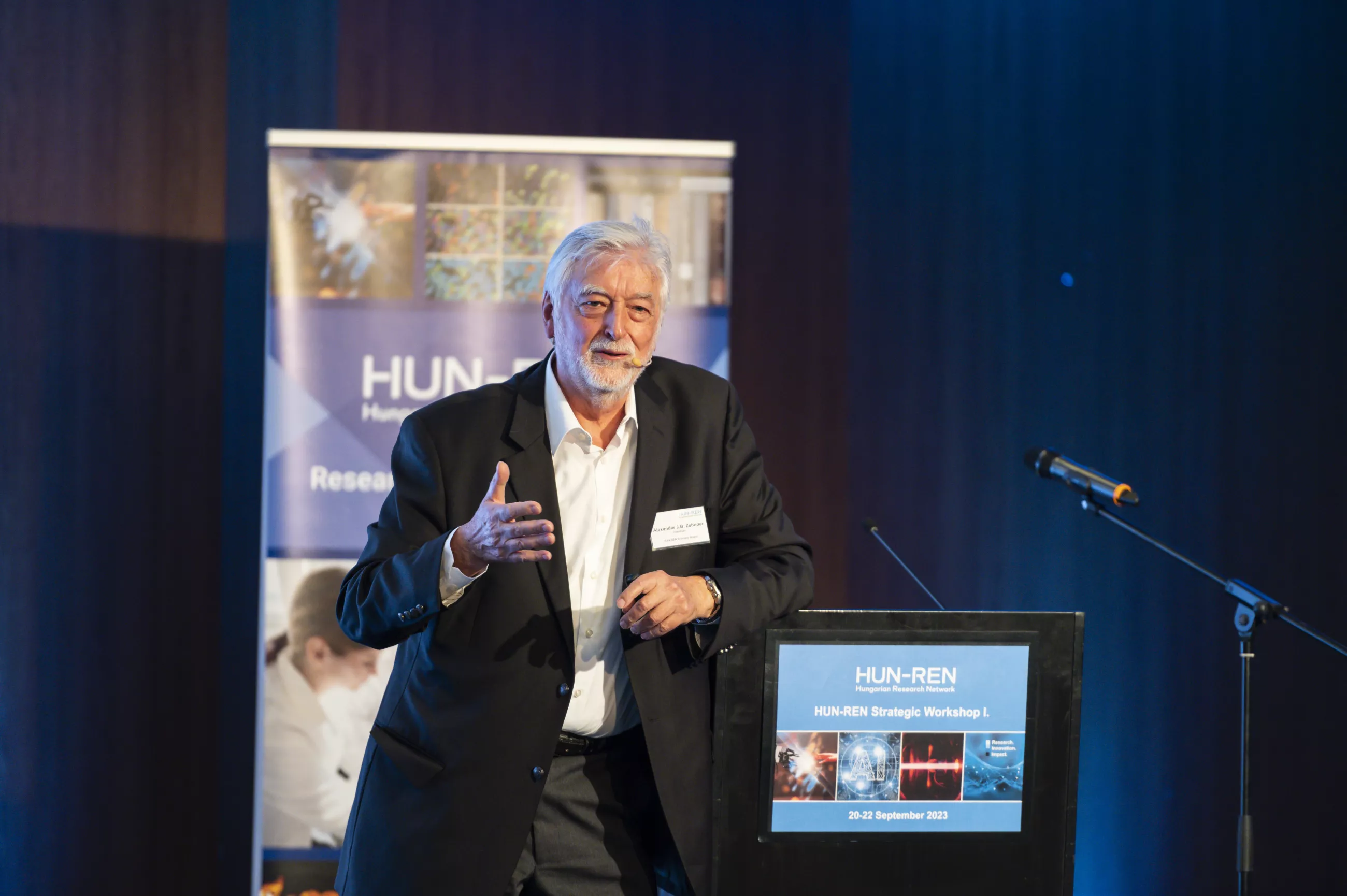
Professor Alexander J. B. Zehnder, Chairman of the HUN-REN Advisory Board, who has held leadership positions at top-ranking universities for decades, elaborated on the position, role, socio-economic impact, and development opportunities of research institutions in a global context.
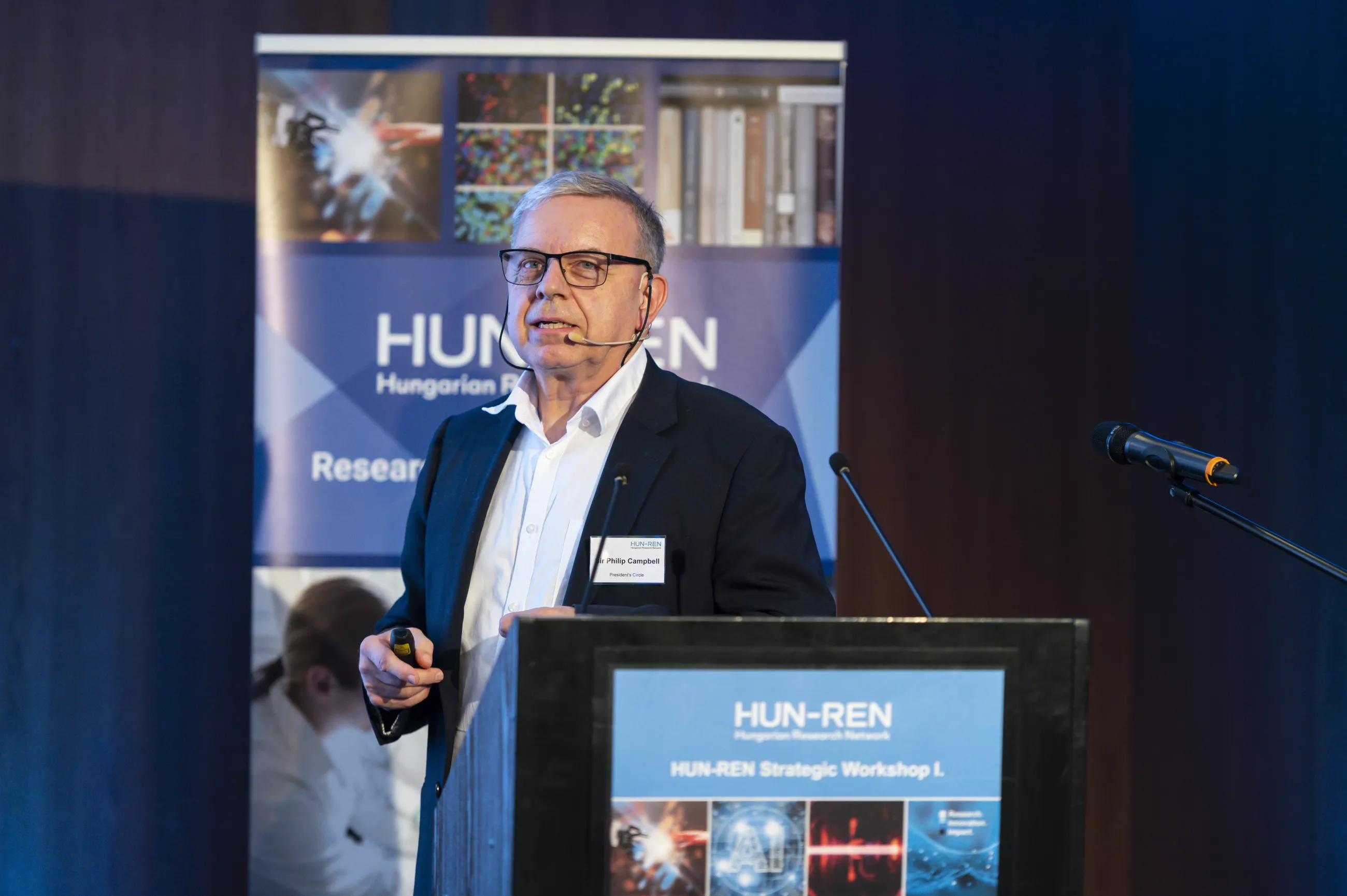
Sir Philip Campbell, former editor-in-chief of Nature—the world's most prestigious scientific journal—and a member of the HUN-REN President's Circle, delivered a presentation titled Impact – Research Assessment for the 21st Century. He discussed Science Europe's 2020 and Clarivate's 2022 research assessment reports, the United Kingdom's Research Excellence Framework for 2021 and 2028, as well as the possibilities for documenting and evaluating societal impacts.
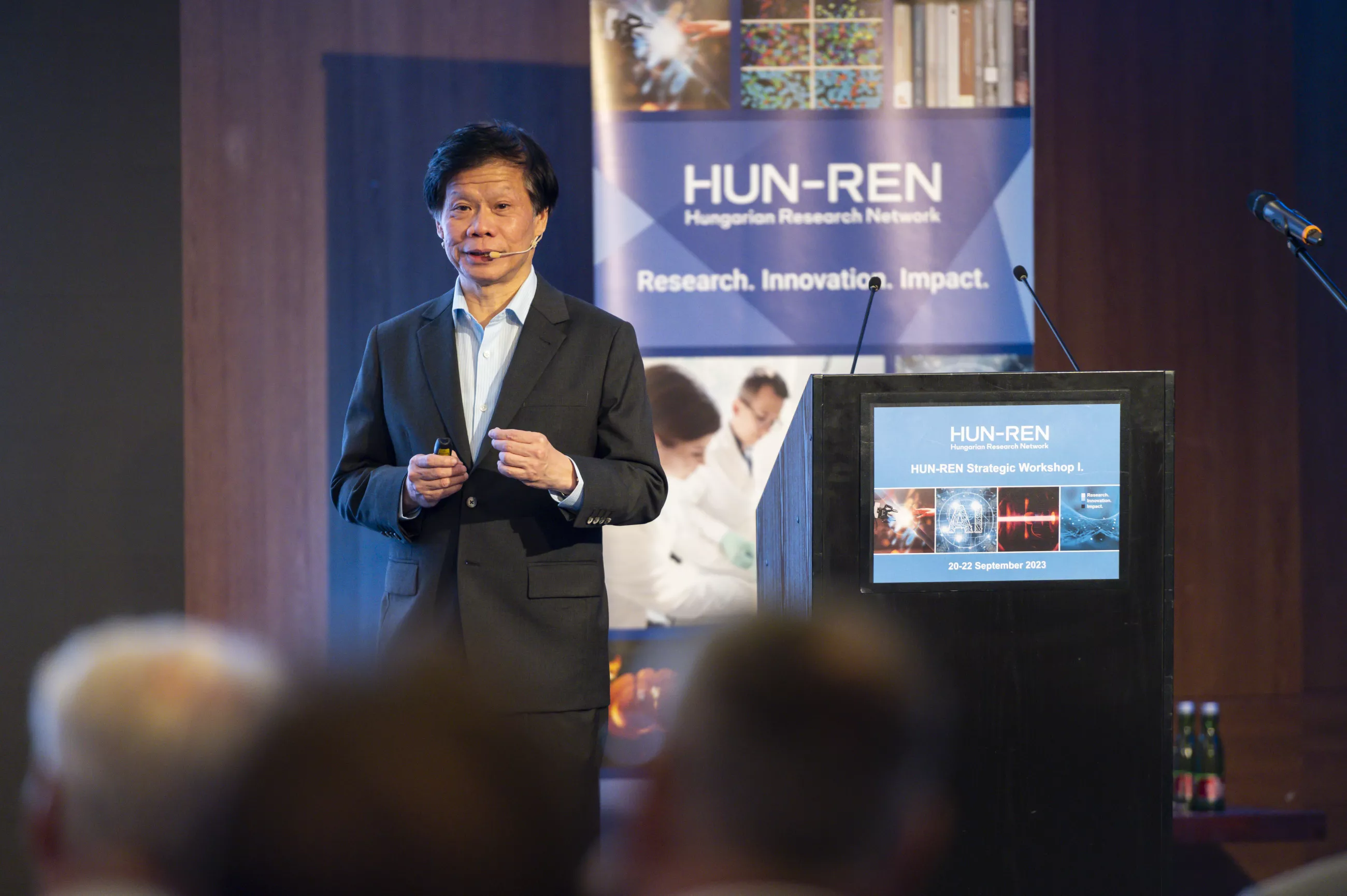
Professor Lam Khin Yong, member of the HUN-REN Advisory Board, Vice President (Industry) at Nanyang Technological University in his presentation titled Globalisation of Research Translation and Innovation through Multi-Party Partnership: NTU Singapore Perspective addressed topics including the current challenges and implications of the globalisation of research translation and innovation, as well as the significance of multi-level collaborations.
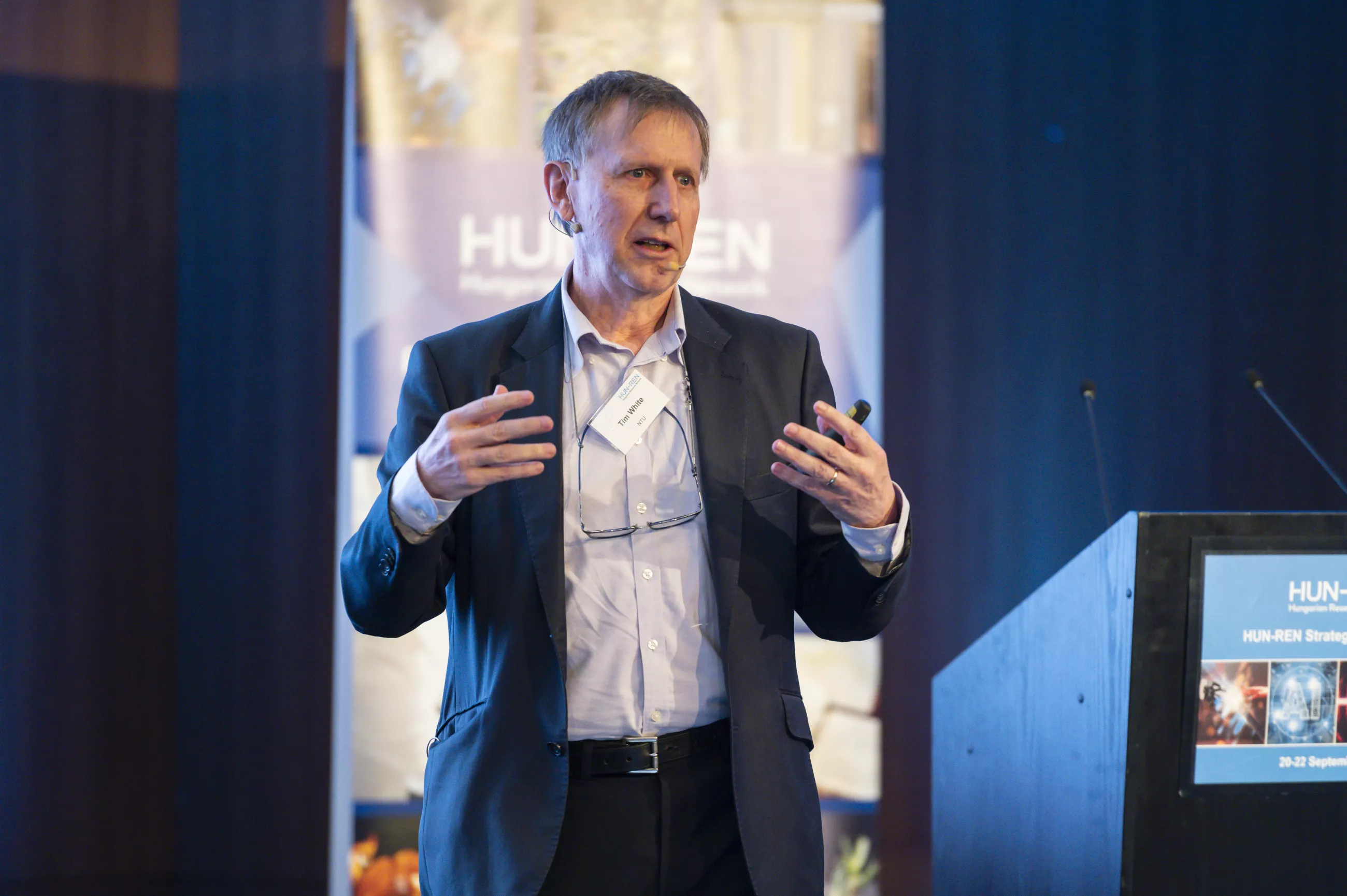
Timothy White, Vice President (International Engagement) at Nanyang Technological University, discussed NTU's higher education and research valorisation initiatives and results in his presentation titled Singapore RIE Ecosystem: Valorisation of Tertiary Education and Research at NTU.
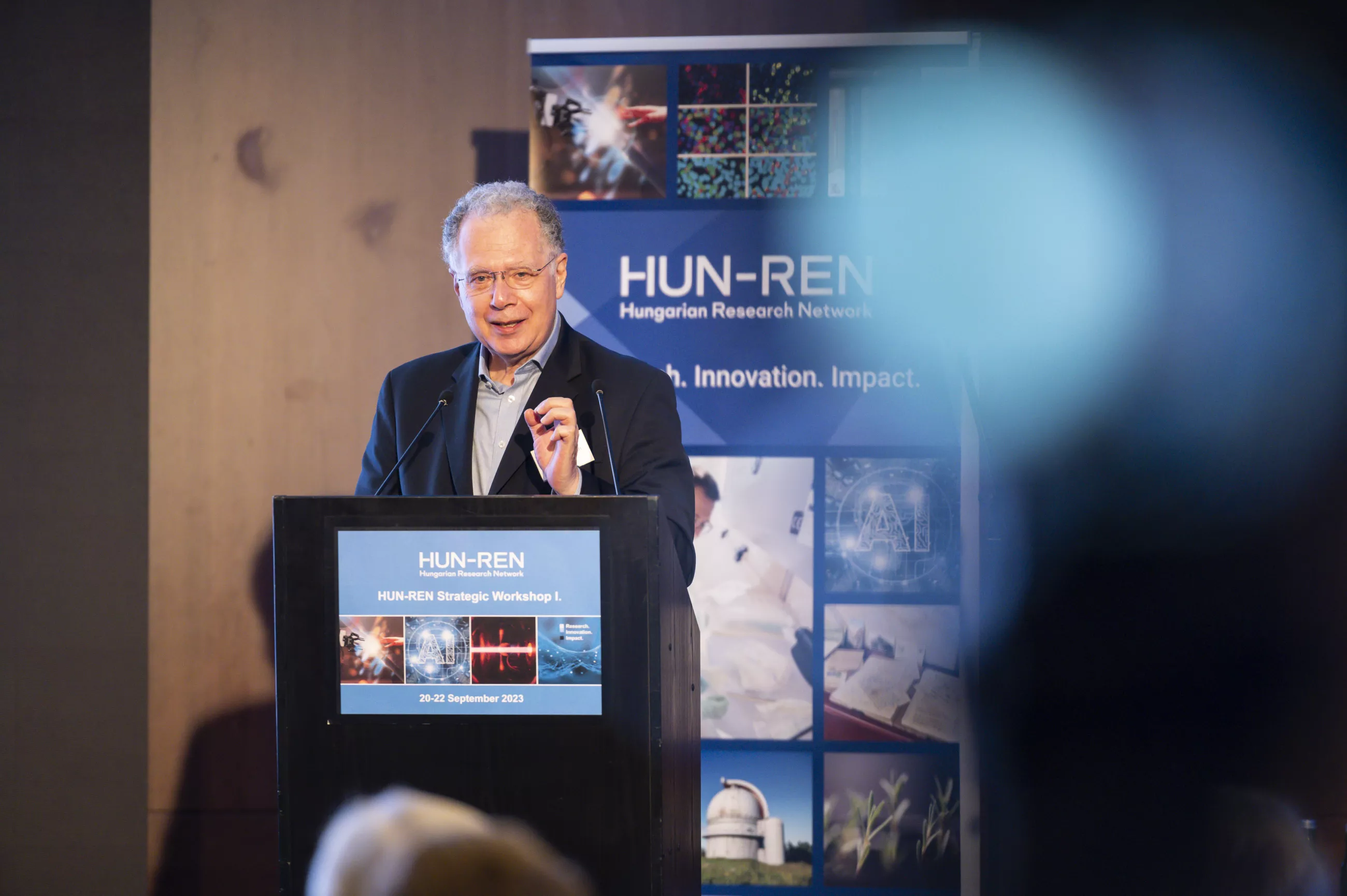
David Goldman, member of the HUN-REN Advisory Board, Deputy Business Editor of Asia Times in his lecture titled AI’s Implications for Global Trade and Investment: De-Risking or Re-Coupling? presented the consequences of artificial intelligence on global trade and investment. Following this, Professor Chantal Delsol, member of the HUN-REN Advisory Board, emeritus professor of philosophy at Gustave Eiffel University in France, as well as the founder of the Hannah Arendt Research Institute discussed the role of science in modern society.
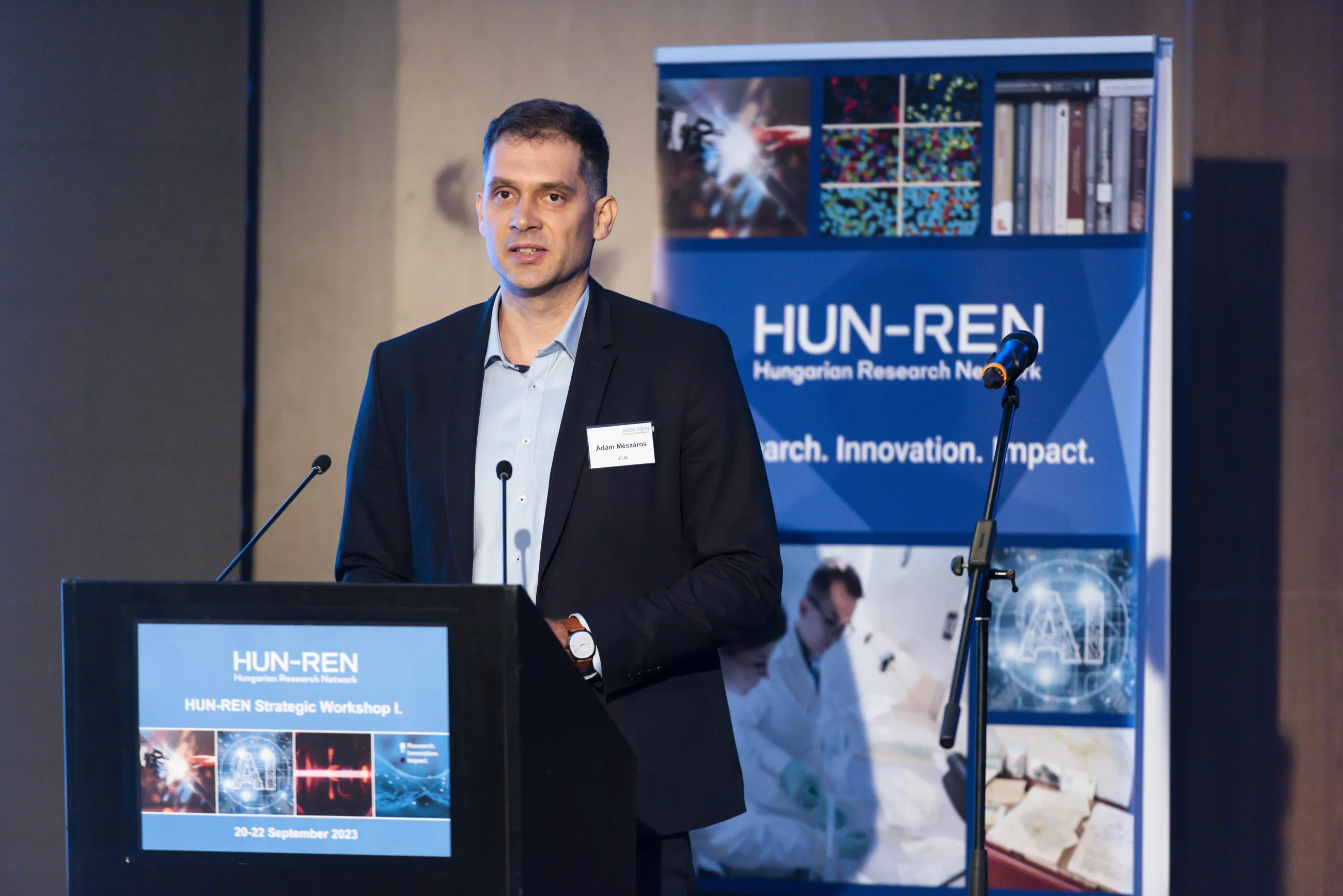
Ádám Mészáros, Managing Consultant at IFUA Horváth & Partners Ltd. analysed the capacities and performance of the research network in international comparison from 2020-2022. He also highlighted emerging mega-trends in scientific research.
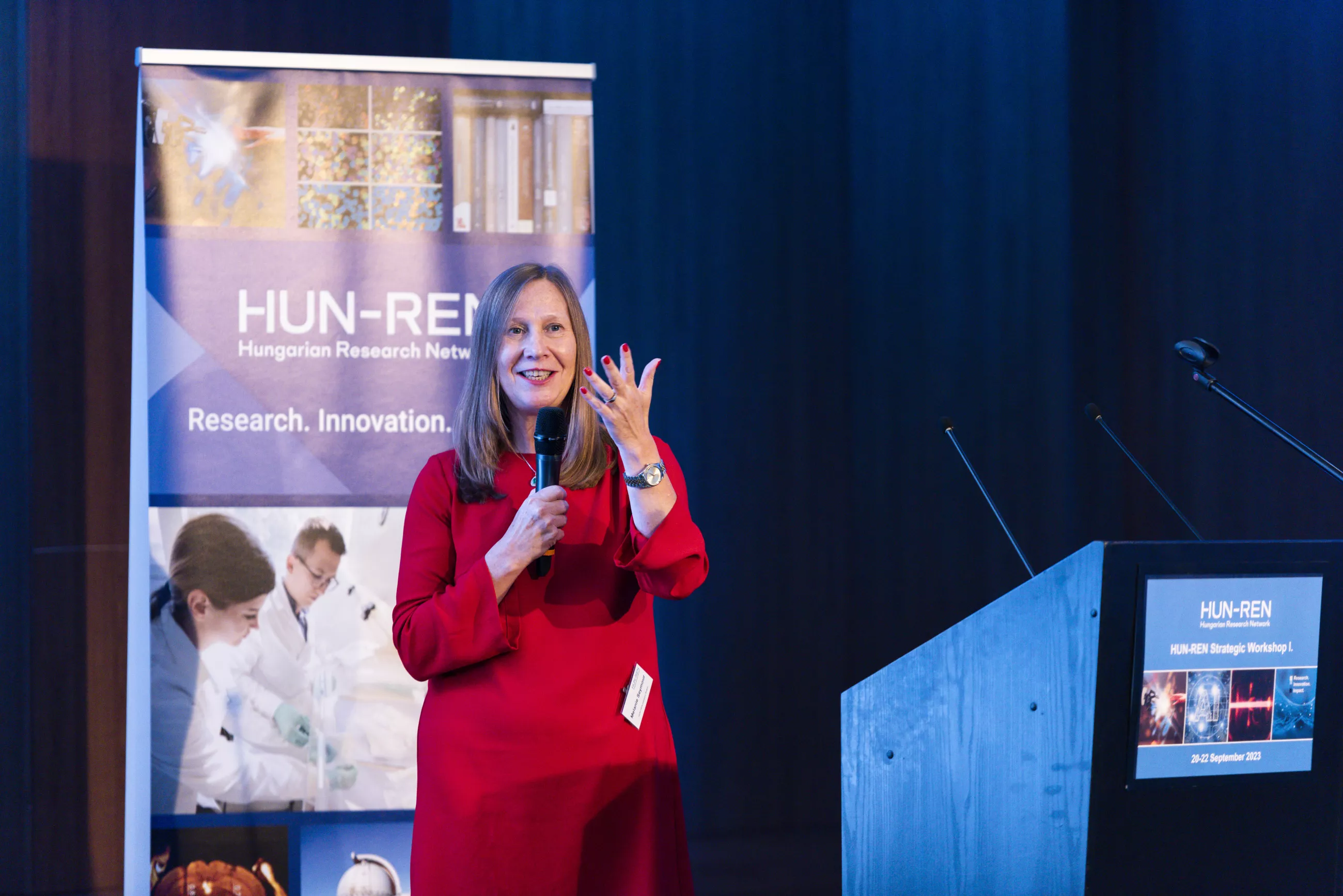
Melanie Seymour, member of the HUN-REN Advisory Board, Head of Global Client Service at BlackRock spoke about how to drive mindset changes, how to align all employees to support organisational goals. She also shared her own experiences in Hungary.
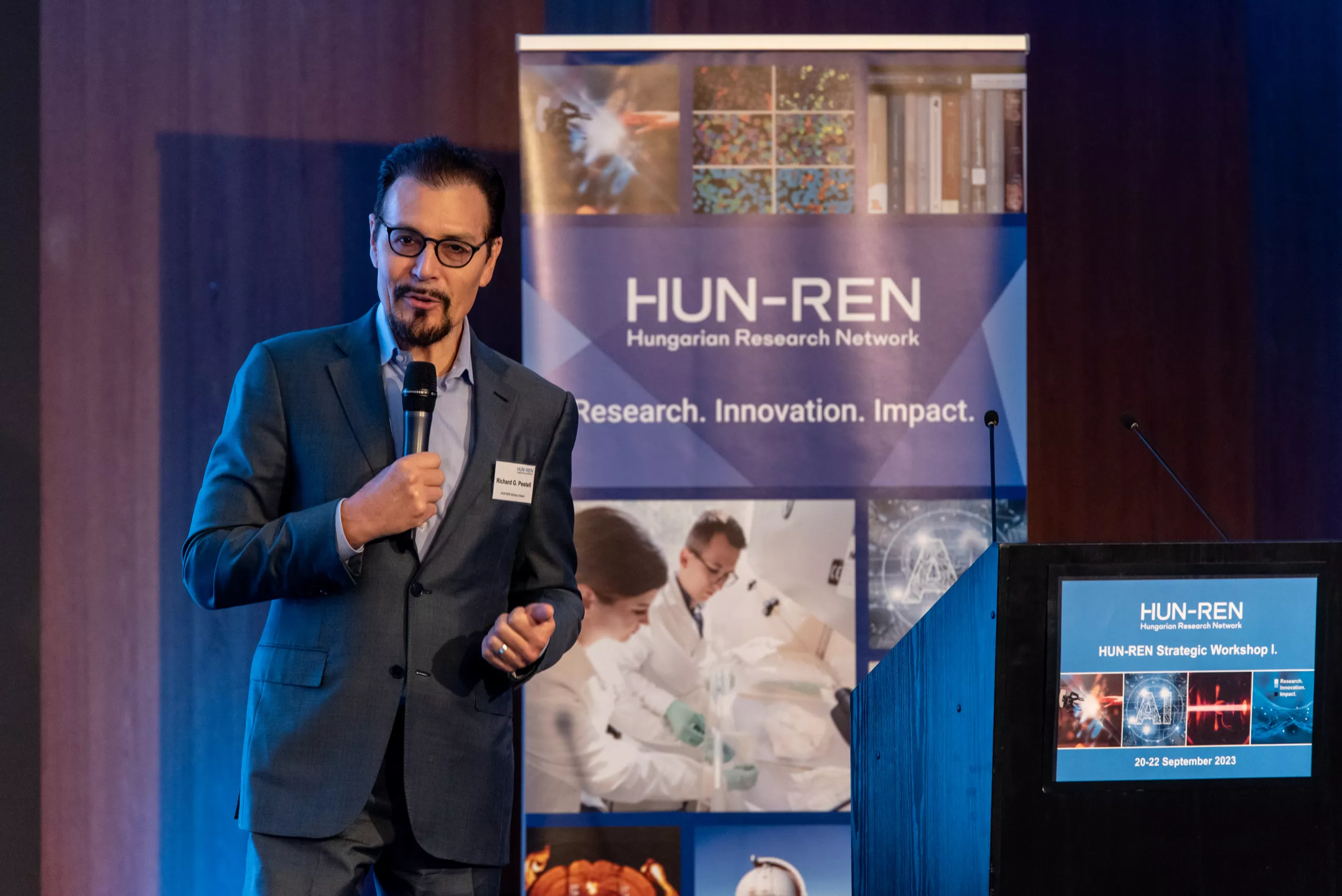
Richard Pestell, one of the world's leading cancer researchers, member of the HUN-REN Advisory Board gave a presentation entitled Research Commercialization in Academic EcoSystems, focusing on the commercialization of research. Professor Pestell, who, in addition to holding several prestigious scientific roles, is the founder of six biotechnology companies, highlighted the benefits of research and development collaborations between the business, industry and academic sectors, and the strengthening technology transfer processes for the entire R&D ecosystem.
During the three-day workshop, the research sites belonging to the Hungarian Research Network had the opportunity to present their vision for potential breakthroughs. President Balázs Gulyás anticipates that these newly initiated collaborative efforts will contribute to Hungary's goal of ranking among the top ten countries in Europe in terms of scientific performance.
